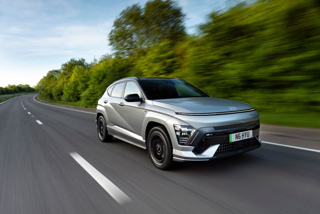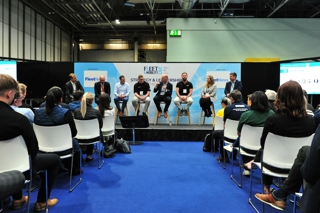The post-pandemic growth in working from home has resulted in almost one in four fleets (23%) expecting to lengthen company car lease contracts, new research reveals.
The 2023 Arval Mobility Observatory Barometer surveyed businesses who have introduced or extended working from home since the start of the pandemic.
It found that the move towards contract extensions is more pronounced among larger companies with more than 1,000 employees (38%) compared to the smallest with fewer than 10 (24%).
Shaun Sadlier, head of Arval Mobility Observatory in the UK, explained that a number of trends have converged following the pandemic.
He explained: “The most important is that some fleets are now covering markedly fewer miles, allowing them to operate vehicles for longer without higher mileage becoming an issue.
“Home working is one of the main reasons for this trend. If people aren’t driving to work at least some of the time, their cars are simply not accumulating the same kind of mileage as when they commuted more often, and those vehicles can be operated for potentially quite a lot longer, perhaps a year or more.”
Longer leases are also generally lower cost on a month-by-month basis, providing fleets with financial incentives.
Sadlier says this is true up to the point where maintenance becomes an issue, when the potential for major component failure becomes a likelihood.
Interestingly, some businesses surveyed (14%) believe that homeworking will lead to a reduction in contract lengths, with activity this time concentrated towards smaller fleets (22%) compared to the largest (4%).
“Presumably, these businesses have run the figures and found that for the kinds of cars that they operate and the lower mileages they are covering, it makes financial sense to replace them more regularly,” said Sadlier. “However, we have seen very few cases of this happening at Arval in the UK.”
The Arval Mobility Observatory Barometer also found that the average length that UK companies operate cars is now 4.7 years, ranging from 5.1 from the smallest companies to 4.6 for the largest.
While it has no historical data against which to make a comparison, the Arval Mobility Observatory Barometer says its best estimate is that this figure is perhaps a year longer than before the pandemic.
“Of course, this increase is not just about home working,” explained Sadlier. “A key development is simply that getting hold of replacement vehicles has been extremely difficult following the pandemic.
“The situation is now beginning to ease a little, but fleets have not been cycling through the buying and selling of cars in the normal fashion because it has been pretty much impossible.”
Sadlier says that fleets have discovered modern cars are capable of higher mileages without reductions in reliability that would make them unsustainable.
He concluded: “A car entering its fifth year with perhaps 80-100,000 miles on the clock is less reliable that one that is two years younger but probably not to a degree that is problematic.”























Login to comment
Comments
No comments have been made yet.